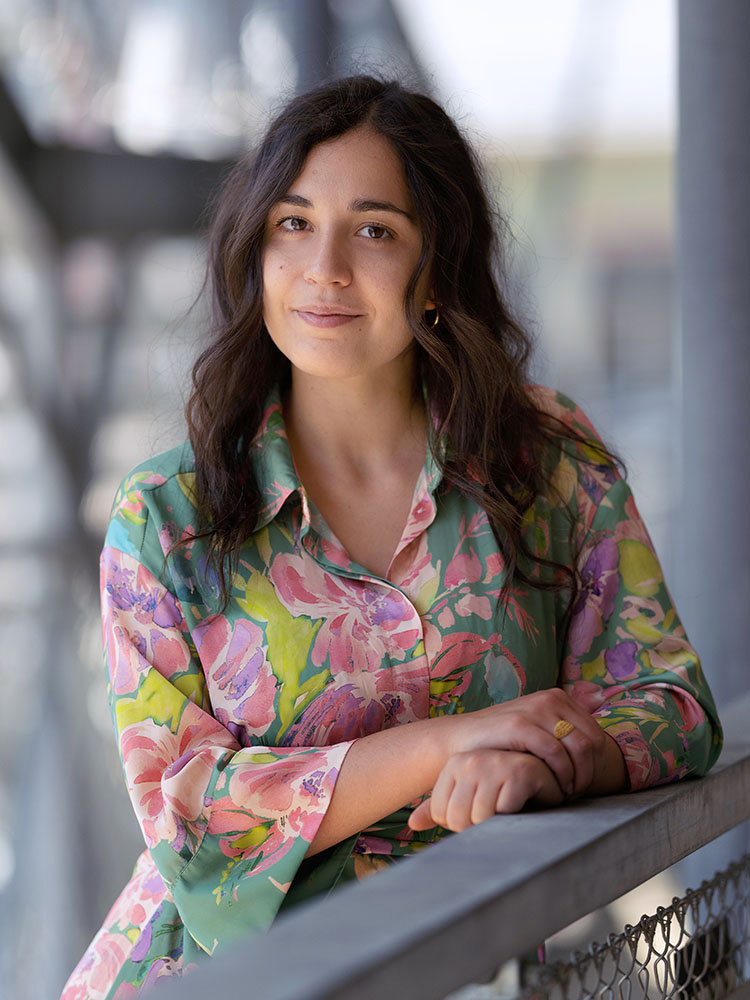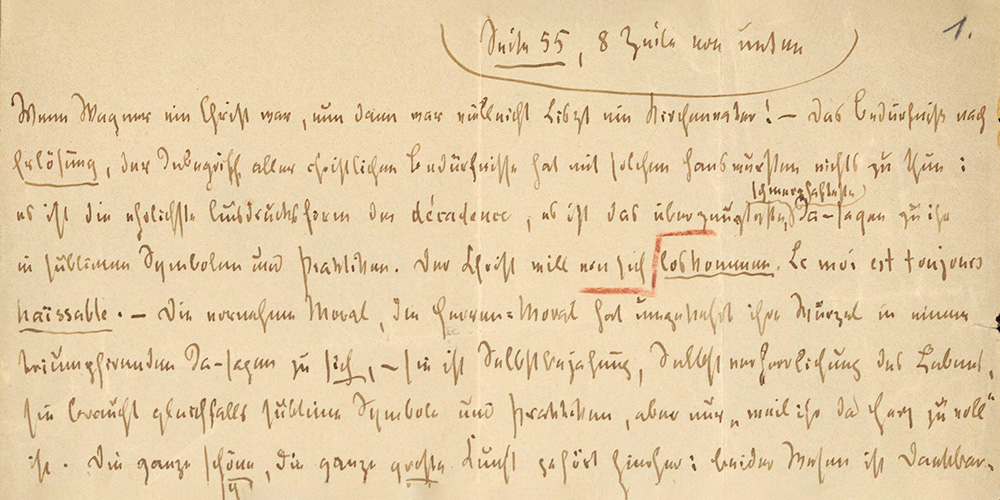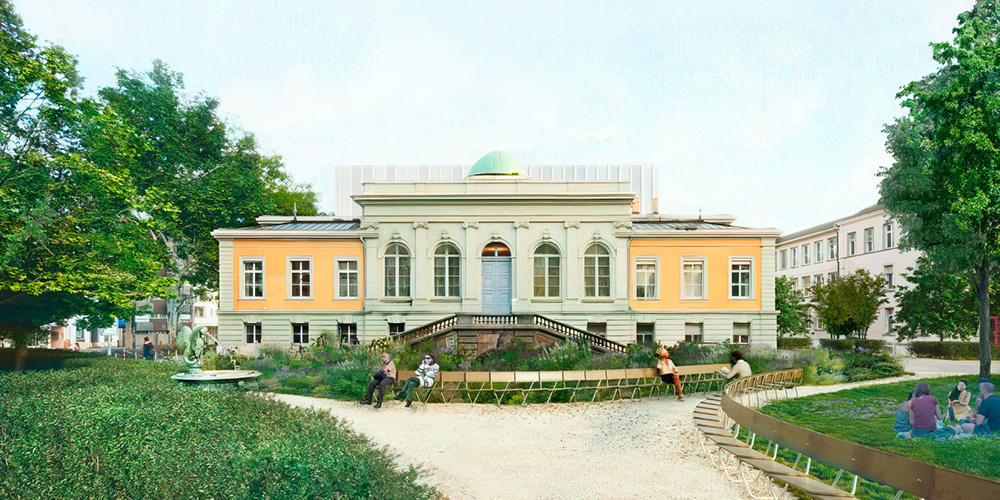Turning the Page on Climate Anxiety
Cristina Loi, from the Digital Humanities Lab, has successfully applied to the BRIDGE – Proof of Concept grant. She tells us more about her project “Turning the Page on Climate Anxiety: Empowering Youth for Sustainable Change, Testing the effects of a shared reading program for young adults in Switzerland”.
Could you please briefly describe your research project and its main goals?
My project proposes a way to tackle an issue that is particularly relevant now, especially for young adults, which is climate anxiety. Climate anxiety is emotional distress in response to the perceptions of climate change. This type of anxiety does not necessarily result in adopting more pro environmental behaviors because it can induce hopelessness for the future, which can lead to eco paralysis, the inability to take action. At the moment there are many calls for actions for researchers to study how to inspire these environmental behaviors in young adults, while simultaneously improving well-being and reducing levels of climate anxiety. This is a necessary step to support policy makers in implementing the appropriate education curricula as well.
In this context, my project is proposing a targeted strategy to respond to these needs: the implementation and the assessment of a new shared-reading program for young adults in the Basel area. The program uses “shared reading”, an established methodology with benefits for mental health, and adapts it to suit better the needs of young adults.
A regular shared reading session sees a group of people reading aloud and discussing literary texts and poems in a safe environment. Here, we will use not only these written narratives, but also audio visual narratives such as movies, TV series, video games, and social media storytelling. Additionally, all the narratives will revolve around the topic of climate change and the future of the planet.
We will measure the levels of well-being, climate anxiety, and environmental behaviors before and after the program to detect any positive changes. If we do, we will offer this new methodology, called “Sharing Futures”, to policymakers in the field of education and to teachers themselves so that the topics of climate change can be better addressed in classrooms and outside. Including climate fiction in literary subjects might actually support the traditional approaches on teaching climate change within the natural sciences exclusively.
What was your main motivation to apply for the BRIDGE Proof of Concept? Why was it a better fitting instruments for your project as other grants?
When I applied for BRIDGE, I was just about to defend my doctoral thesis and I was looking for a grant or funding scheme that would allow me to apply my results even before my PhD title had been awarded. BRIDGE – Proof of concept allowed to do this and this is how I learned about it in the first place.
The second reason, which is perhaps the most important, is that I was fascinated by the whole proof of concept idea, of translating the findings of research into the real world, into society. I found this very unique and it immediately interested me. It allows me to develop a program that has the opportunity to remain in place as a methodology in education even after the grant is finished. This was really new to me and I have to say it's really exciting.
What was the main challenge when you had to write the proposal for the BRIDGE – Proof of Concept, for example business plan, IPR, etc. coming from social sciences?
The main challenge for me was definitely navigating the application documents because most of them had a business sounding angle. For example, the patent search, the IP rights, and also all the references towards a market research and the business potential of the proposed innovation. These are all terms that tend to be very distant from the world of the humanities where I belong.
I was very confused at first and I was even skeptical that a project like mine could actually be a good fit for this funding scheme. And that's when I contacted the Grants Office at the University of Basel, and asked for their help. They read through my proposal, gave me feedback and advice, and they answered all of my questions and doubts.
It turned out that the terms that I found so scary in the beginning, like a market research, were actually way more approachable than I thought of. It was more of an internal hesitance on my side: I realized it was based more on preconceptions about humanities and aspects like market research being incompatible, but they really are not.
The main challenge for me was definitely navigating the application documents because most of them had a business sounding angle. For example, the patent search, the IP rights, and also all the references towards a market research and the business potential of the proposed innovation. These are all terms that tend to be very distant from the world of the humanities where I belong.
I was very confused at first and I was even skeptical that a project like mine could actually be a good fit for this funding scheme. And that's when I contacted the Grants Office at the University of Basel, and asked for their help. They read through my proposal, gave me feedback and advice, and they answered all of my questions and doubts.
It turned out that the terms that I found so scary in the beginning, like a market research, were actually way more approachable than I thought of. It was more of an internal hesitance on my side: I realized it was based more on preconceptions about humanities and aspects like market research being incompatible, but they really are not.
What was the main challenge when you had to present and explain your project during the interview?
I always find it very hard to present a project that I have been working on for months in just 10 minutes. Somehow it always feels like there's not enough time to present all the reasons why it should be important to pursue this project and you always have that feeling that you might be leaving out something important.
Trying out that presentation and getting the timing exactly right was definitely a challenge for me. Also, the countdown clock in the interview room can definitely be a little bit scary but that being said, I actually really enjoyed my interview. Answering the committee's questions at the end of the presentation felt particularly rewarding, because these questions actually gave me the chance to expand on certain aspects that were not fully developed in the short time of the presentation. This is something that I really liked. Some questions were definitely specific to BRIDGE about the financial aspect of the project. For example, they asked me what kind of company I was envisioning could result from it, and how I would manage its financial side.
What are your recommendations to research colleagues, who might think about applying to the next BRIDGE Proof of Concept?
My first recommendation is to open the application system way in advance and familiarize yourself with all the required documents. Having to do it all under pressure and close to the deadline can be really too overwhelming.
My other recommendation would be to ask for support from the grants office if you have questions or if you're unsure about something, reaching out to them made a lot of difference for me and I initially did not even think about it. It was a colleague of mine that recommended me to do it and I'm really grateful for that.
If there's one last thing I can say, it's that I would like to encourage researchers from the humanities to consider this funding scheme more. Not many people from our departments decide to apply at all, and I assume that part of this is due to the same doubts that I had before. I really hope we can see a change in this direction.
Thank you very much for this interview. We wish you all the best and much success with your project.
BRIDGE - Proof of Concept
Bottom-up projects, 12 months, 130'000 CHF
Deadlines 2024: September 2 & December 2
Funded by Innosuisse in collaboration with SNSF, this instrument is aimed at early career researchers (from bachelor to PhD level). It promotes the first step to concretely implement research results into products or services, while staying within the university.



